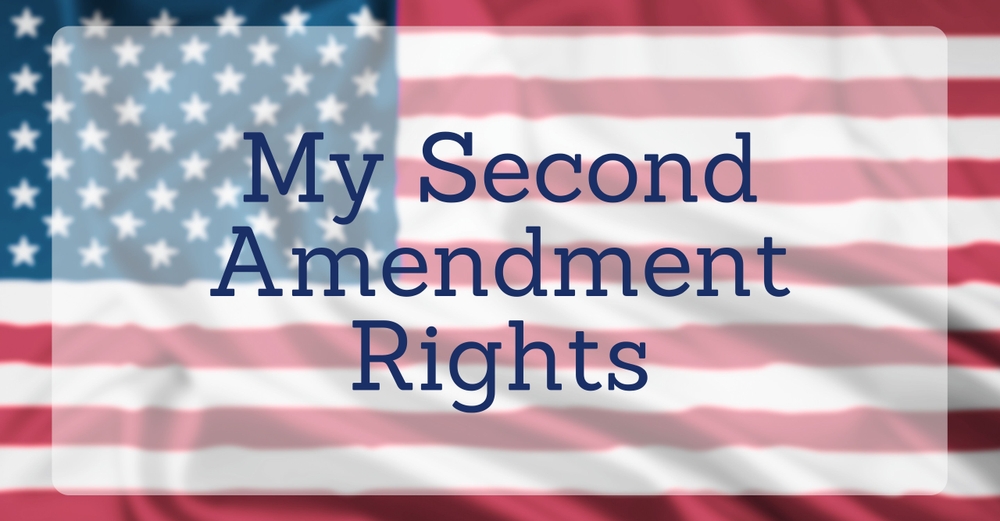SB2 and the Attempted Assassination of Concealed Carry – Where are we with the sensitive area bill?

It doesn’t always seem so, but America in general is very pro-Second Amendment (2A). As we no longer, for the most part, have a free press populated with investigative journalists but rather have what amounts to a propaganda arm for the Democrat party, the reporting on this subject has a very strong anti-2A bias.
The reality is that of the 50 states, probably 42 or 43 of them are reasonably fair and supportive of the Second Amendment and the rights it protects. While there is room for improvement in the majority of states, things are not nearly so bleak as some would have us believe. Of the 50 states, 29 are currently constitutional carry states, a number likely to grow in the coming years, where no permit is required for a citizen to exercise his or her right to carry a concealed firearm for personal protection.
SB2 is the reaction of the California government to the 2022 US Supreme Court (SCOTUS) ruling in NYSRPA vs Bruen. In the Bruen case, SCOTUS essentially ruled that the Second and Fourteenth Amendments protected the right of law-abiding citizens to carry a handgun outside the home for self-defense. The ruling has effectively ended the “may issue” policy that was still used in some states.
California and some of the other backward, oppressive states reacted by passing “sensitive area” legislation of which SB2 is an example. These laws essentially say that it is legal for a CCW holder to carry a concealed handgun anywhere that is not designated as a sensitive area. SB2 and other legislation like it simply declare everywhere to be a sensitive area essentially eliminating concealed carry. Examples of SB2 defined sensitive areas include any business, church, bank, hospital, park, all public transportation, airport property, and parking lots adjacent to any of those areas. The full list is much longer.
Five states are currently attempting to implement sensitive area type laws. All of these laws are being challenged in court. All of these laws will eventually be struck down as they are unconstitutional and in direct conflict with the Bruen decision. What follows is a summary of the current status of each of these court challenges.
California – May v. Bonta, Carralero v. Bonta
The plaintiffs were granted an injunction for the sensitive area portion of SB2 (in addition to sensitive areas, SB2 contains other gun-control provisions not under injunction) preventing that portion of the legislation from being implemented. The 9th Circuit stayed the injunction allowing the law to go into effect briefly but then dissolved the stay. Currently the sensitive areas portion of SB2 is not in effect while the 9th Circuit, which heard oral arguments in the case in April, deliberates. A ruling is expected in the coming months.
Hawaii – Wolford v. Lopez
Similar to SB2, the Hawaii sensitive area law is being challenged in court. The U.S. District Court of Hawaii granted a temporary restraining order preventing the law from being implemented and the 9th Circuit declined to stay the order. Oral arguments were also heard by the 9th Circuit in April, and a decision is expected in the coming months.
New York – Antonyuk v. Hochul
The New York version of SB2 was challenged in the U.S. District Court Northern District of New York where a judge ruled mostly in favor of the plaintiffs. In December the 2nd Circuit upheld most of the law where upon the plaintiffs filed a petition of certiorari with the U.S. Supreme Court (in other words they asked the Supreme Court to rule on the case) and are waiting on word from SCOTUS.
New Jersey – Koon v. Platkin
Same story with the New Jersey version where a judge from the U.S. District Court District of New Jersey ruled mostly in favor of the plaintiffs and the ruling was appealed by the State. The appellate court heard oral arguments in October of 2023 and the plaintiffs are still waiting for a ruling.
Maryland Shall Issue v. Montgomery County
The Maryland sensitive area law was challenged, and the case heard by the U.S. District Court District of Maryland where the plaintiff’s motion for preliminary injunction was denied. The appeal is pending.
These laws will eventually be overturned as unconstitutional but depending on the courts to correct the abuses of politicians is time consuming, expensive, and the outcome uncertain at best. For example, since 2007 of the 9th Circuit cases that went on to be heard by SCOTUS, 79% were overturned, the second highest reversal rate in the system.
While most judges are honest and competent, our justice system is also populated by activist judges, corrupt judges, and incompetent judges who seem not to understand their role in the system. This is true from our lowest courts to the highest court in the land. Depending on courts to protect the rights of citizens is not a winning strategy.
The only winning strategy is to elect leaders that respect the Constitution and who will uphold the rights protected within and defend the freedom and liberty of all Americans. November is fast approaching offering Americans their next opportunity to choose their leaders and the differences between the two sides could not be more stark, the choice could not be more clear. The question remains as always; in what kind of country do you wish to live?
©2024 Joseph T Drammissi
This article and more of Joe’s work covering the Second Amendment and other topics can be found on Substack at https://getagrip.substack.com
